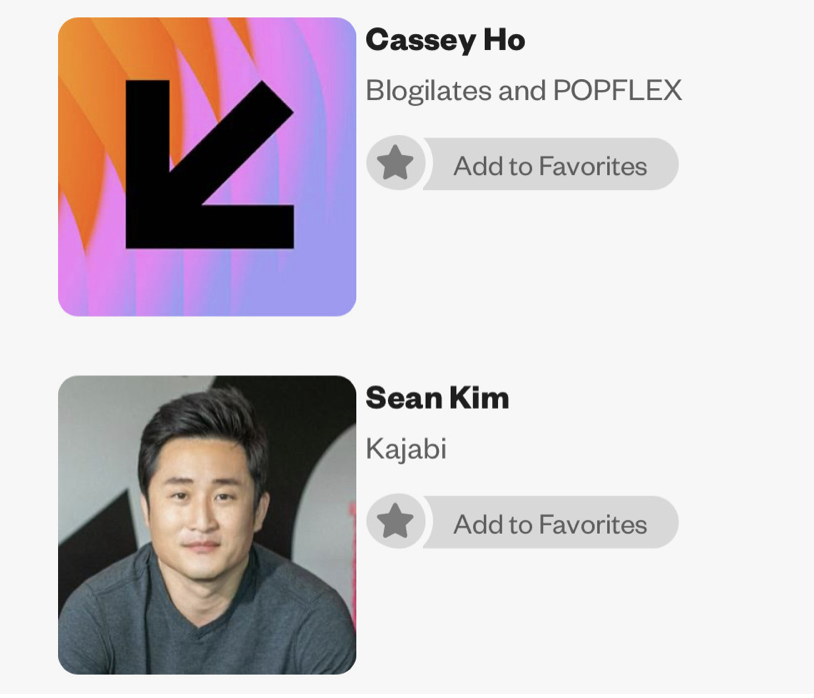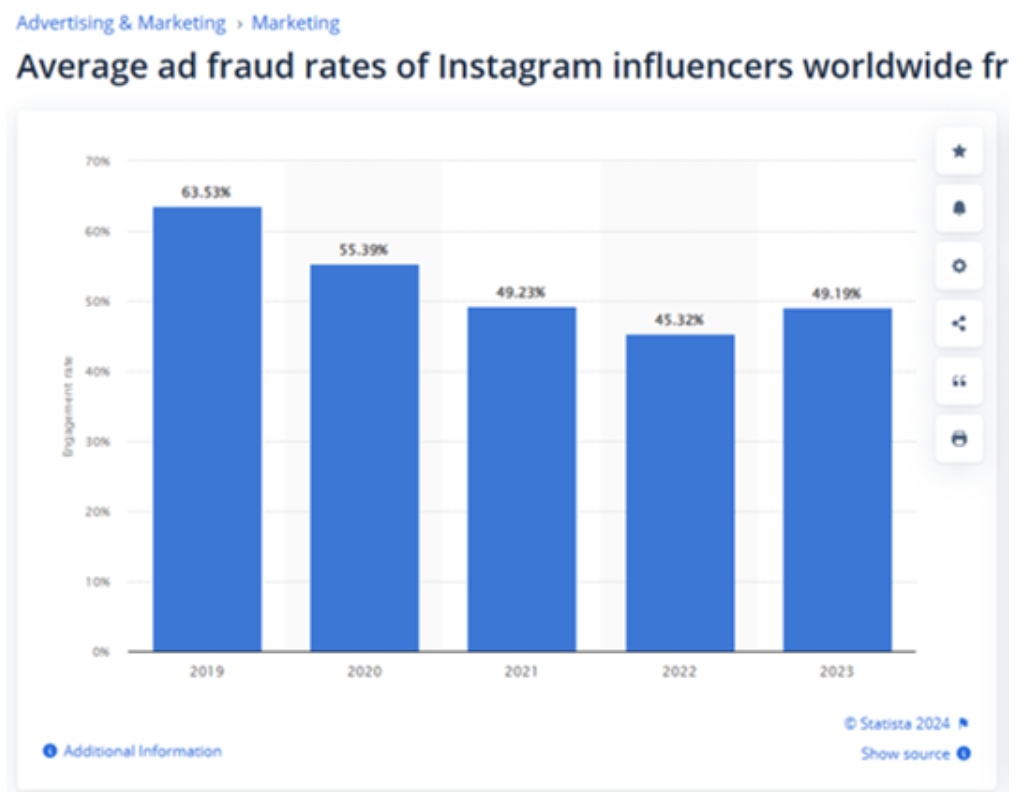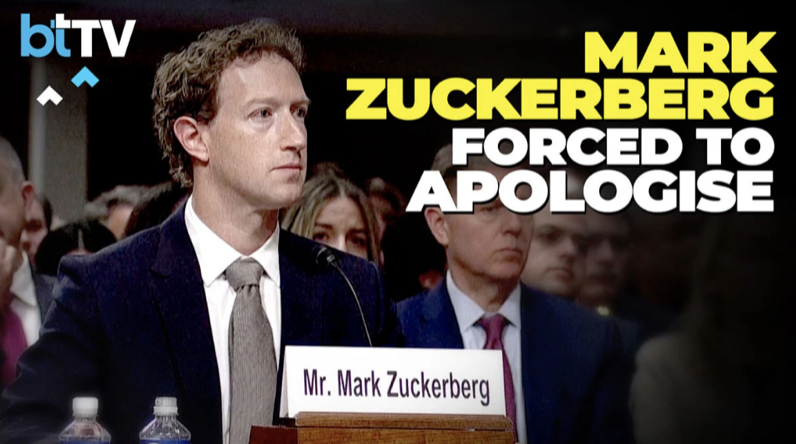TechTalk Daily

By: Rex M. Lee, Privacy Advisor and Tech Journalist for My Smart Privacy
Aside from the fact that many popular social media platforms are developed using highly addictive and harmful “Brain Hijacking Technology” associated with manipulative advertising technology, social media platforms are also a playground for social media influencer fraud.
That social media influencer you may be following could be conning you while making millions of dollars from targeted advertisers. These advertisers then exploit you for profits at the expense of your privacy. Therefore, the ads you receive are based on your confidential personal information by social media platform providers such as Facebook, Instagram, and TikTok.
In today's digital age, marketers, consumers, social media end users, and content producers must be aware of how the influencer game operates to protect themselves from deception. According to numerous researchers and marketing firms, the social media influencer market is ripe with fraud and has been for a long time.

As a technology journalist, I cover SXSW each year, and the SXSW universe revolves around social media promotion. This year, I wanted to look under the veil and see how the social media marketing machine works regarding the role of influencers.
I wanted to learn how the influencer game is played based on the information I learned by attending a social media marketing session at SXSW 2023. The informative sessions featured industry experts; such as Sean Kim, former TikTok Head of Product, alongside social media influencer Cassy Ho of Blogilates and POPFLEX.
Mr. Kim revealed the following*:
Despite subsequent monetization tools, including paywalls and subscriptions, TikTok users in the U.S. criticized the low payouts from the fund, leading some creators to leave the program. Additionally, transparency remains a persistent issue for many TikTok users. When asked if TikTok paid the full $2 billion, Sean Kim responded with a straightforward "No."
I was shocked when I heard Mr. Kim say that content producers on TikTok were essentially being scammed. In the Muck Racklounge at SXSW 2023, I was the original tech journalist to break the news about Mr. Kim's revelation - when I spoke to several tech journalists about what Mr. Kim admitted at the session on social media influencers, content providers, and marketing. Due to this revelation by Kim, one reporter even called his editors immediately upon hearing my report. *information also provided by the Hollywood Reporter, People of Color in Tech, and Billboard.Com
Through my experience during SXSW 2023, I had a clear goal for SXSW 2024, to learn more about the social media space. That being said, I set out to interview several TikTok content producers at a TikTok content producer meet-up at the Marriott Hotel in downtown Austin, TX.
I interviewed five content producers, of which only one, Jesse Crosson, confirmed they were getting paid. The TikTok creator fund payments were distributed based on views, but TikTok ran out of funds and never added money to sustain payments to all content producers, validating Mr. Kim’s claims.
Mr. Crosson also stated that influencers should engage in ad sharing to monetize once they get to 100K followers. This seems to be an issue for most content producers and/or would-be influencers, who have no idea how the Pay-to-Play game works regarding social media platforms.
Numerous established influencers and content creators participate in Pay-to-Play schemes to increase their following and engage in deceptive practices. Researchers suggest that a significant portion, perhaps even the majority, of their followers are automated bots designed to imitate human behavior.
Below are some fascinating statistics that I uncovered during this two-year investigative report:
Follower Fraud:
In 2023, approximately 49% of Instagram influencers engaged in follower fraud (Source Valentina Dencheva- 2024: Ad fraud rates of IG influencers worldwide 2023 | Statista). Additionally, about 45% of Instagram, 15% of X, and 5% of Facebook accounts are bots designed to mimic real people.
Figure 1:

Up to 97% of all traffic coming through TikTok could be detected as automated bot requests by our software (Fraud0/2023: TikTok’s massive problem with bots, fake accounts and scam (fraud0.com). The influencer fraud rates are based on buying followers, likes and comments, stories views, and comment pods. Today, no influencer or content producer grows their followers organically, it is all done through high-priced PR firms that know how the pay-to-play marketing industry operates.
Algorithmic Censorship- No Free Ride for Would-be Influencers/Content Producers
If you are an influencer and/or a content producer with no cash to pay-to-play, good luck. Most centralized/mainstream social media platforms engage in "algorithmic censorship," which includes visibility filtering, throttling access to content, shadow banning, and the death sentence, "De-platforming." Depending on your political ideology, you may not be seen as legitimate news resulting in algorithmic censorship.
A great resource on Algorithmic Censorship was written by Jennifer Cobbe, Faculty of Law, University of Cambridge who wrote a paper titled “Algorithmic Censorship by Social Platforms: Power and Resistance”: Algorithmic Censorship by Social Platforms: Power and Resistance by Jennifer Cobbe :: SSRN
Social media companies do not want content developers to know how the algorithm works, because they cherry-pick posts. Companies market the content as so-called "Viral Posts" which nobody ever hears about unless they first watch a news program, hear about it on the radio, etc., but social media users never find the post organically. This is a marketing tactic called Pay-to-Play-Placements.
PR firms push out so-called "viral posts" to all media outlets, who charge for pay-to-play placements. In turn, the so-called "viral posts" are commercials for the social media platform more so than the content of the post, which I assume costs millions of dollars to promote a post.
According to the NY Times - "A Network of Pay-to-Play Local News Sites, the demise of local newspapers may have opened the door to large pay-to-play online networks.
A network of 1,300 local news sites publishes biased, partisan content financed by Republican groups and corporate PR firms."
Viral social media posts have indeed evolved into a “pay-to-play” landscape. Let’s delve into why this shift has occurred:
*Sources- sources, NeilPatel.com, Crenshaw Comm, Members.Shingle.com, and Forbes
An influencer marketing technology company found that 1 in 4 Instagram Influencers have purchased 15% of their total followers, and 3 in 4 influencers have bought over 10,000 followers (Source IMAI).
According to researchers, some influencers portray a luxurious lifestyle, jet-setting around the world and flaunting exclusive brands. However, not all of them truly live that way. Fake influencers often inflate their follower counts with bots and fake accounts. These bots don’t engage with content, leading to low engagement rates despite massive follower numbers.
With so much fraud taking place in the social media industry, plus the fact that numerous social media platforms are supported by intrusive, addictive, and harmful technologies, I have to ask -where are the FTC or State AGs regarding consumer/child protection and privacy laws?
Why is it that within the tech industry, developers of consumer products and services, such as social media platforms, can get away with developing highly addictive and harmful products and services? And, unfortunately, these products and services are supported by predatory companies, influencers, and content producers. Additionally, they engage in fraudulent business practices centered on exploiting the social media end-user for financial gain, creating a dangerous space for users.
Social media end users, including teens and children, are being exploited for financial gain at the expense of their privacy, security, safety, and civil liberties. The social media end user, plus numerous advertisers are being harmed and scammed while government agencies such as the FTC and DOJ, plus State AGs, take no action regarding existing consumer protection laws that have nothing to do with Section 230. Unfortunately, this section only protects social media developers from liability associated with the content published by the social media end user.
For example, take former TikTok head of product, Sean Kim’s public admission that TikTok is scamming influencers and content producers out of funds that TikTok said was for influencers and content producers. However, at the end of the day, TikTok paid out little, if any, of the funds according to Mr. Kim at the SXSW 2023 session.
His revelation also raises the question - how come the FTC or State AGs are not enforcing existing consumer protection laws when it comes to these scams, even when former executives such as Mr. Kim make public admissions?

In January of 2024, during a congressional hearing on social media child exploitation, Meta CEO/Chairman, Mark Zuckerberg, apologized to the parents of children who had been harmed or killed, and/or committed suicide as a result of the addictive and harmful brain-hijacking technology baked into Instagram and Facebook (source NBC News, 2024).
Tragically, the FTC and State AGs refuse to enforce existing consumer/child protection and privacy laws related to Meta, ByteDance, Alphabet/Google, and other social media developers. And, unfortunately, these players intentionally develop their platforms to be highly addictive to manipulate and exploit the end user for profits even at the expense of the end user’s safety. It is time the FTC, DOJ, and State AGs enforce existing consumer/child protection laws, especially when you add fraud to the already harmful business practices employed by all tech giants concerned.
As a potential advertiser on social media, and/or end user of social media, information is power. I hope that you use it effectively by being informed of the potential scams taking place on all social media platforms, as well as the harmful and even deadly effects that these addictive platforms have on end users, especially among teens and children.
For more information on social media and the role of influencers, feel free to reach out to Rex M. Lee at rlee@mysmartprivacy.com
About the Author: Rex M. Lee is a Privacy and Cybersecurity Advisor, Tech Journalist, and Senior Tech/Telecom Industry Analyst for BlackOps Partners, Washington, DC. Find more information at CyberTalkTV.com.
Interested in AI? Check here to see what TechTalk AI Impact events are happening in your area.